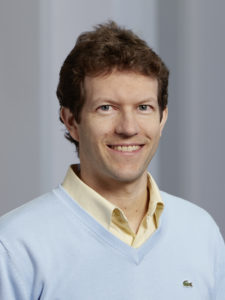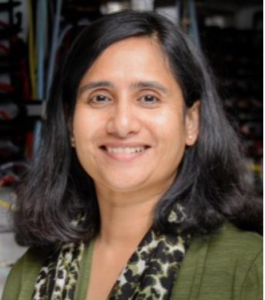Experiencing a New Internet Architecture
Adrian Perrig, ETH Zürich, Switzerland
Abstract: Imagining a new Internet architecture enables us to explore new networking concepts without the constraints imposed by the current infrastructure. What are the benefits of a multi-path inter-domain routing protocol that finds dozens of paths? What about a data plane without inter-domain forwarding tables on border routers? What secure systems can we build if a router can derive a symmetric key for any host within 20ns?
In this presentation, we invite you to join us on our 11-year long expedition of creating the SCION next-generation secure Internet architecture. SCION has already been deployed at several ISPs and domains, and has been in production use since 2017. On our journey, we have found that path-aware networking and multipath communication not only provide security benefits, but also enable higher efficiency for communication, increase network capacity, and even reduce power utilization.
Biography: Adrian Perrig is a Professor at the Department of Computer Science at ETH Zürich, Switzerland, where he leads the network security group. He is also a Distinguished Fellow at CyLab, and an Adjunct Professor of Electrical and Computer Engineering at Carnegie Mellon University. From 2002 to 2012, he was a Professor of Electrical and Computer Engineering, Engineering and Public Policy, and Computer Science (courtesy) at Carnegie Mellon University. From 2007 to 2012, he served as the technical director for Carnegie Mellon’s Cybersecurity Laboratory (CyLab). He earned his MS and PhD degrees in Computer Science from Carnegie Mellon University, and spent three years during his PhD at the University of California at Berkeley. He received his BSc degree in Computer Engineering from EPFL. He is a recipient of the ACM SIGSAC Outstanding Innovation Award in 2013 and became an ACM Fellow in 2017. Adrian’s research revolves around building secure systems — in particular his group is working on the SCION secure Internet architecture.
Towards the Democratization of Network Innovations
Sujata Banerjee, Senior Director of Research, VMware, Inc
Abstract: Networking research and products have seen a rapid pace of innovation in the last decade. This has resulted in many networks that are intent-driven, programmable, verifiable, and able to provide guaranteed performance, in-network compute capabilities and software-based network functions. However, not all networks have experienced the same level of innovation for a variety of reasons and it continues to be challenging to operate and manage brownfield enterprise network environments. This talk will focus on these challenges with examples from prior research and in this context, comment on emerging research problems that arise in taking advantage of new trends such as data-driven approaches to networking.
Biography: Sujata Banerjee leads research activities in the areas of distributed systems, networking and machine learning at VMware. She has worked on software defined networking, network function virtualization, network energy efficiency and measurement. Sujata served as the technical program co-chair of the ACM SIGCOMM 2020, USENIX NSDI 2018 and ACM SOSR 2017 conferences. She holds over 40 US patents and is a recipient of the U.S. National Science Foundation (NSF) CAREER award in networking research. She is a member of the Computing Community Consortium (CCC) Council of the Computing Research Association (CRA) and is on the scientific advisory committee of the FABRIC programmable research infrastructure. In 2020, she served in the AI working group of the FCC’s Technology Advisory Council and was the vice-chair of ACM SIGCOMM (2019-2021). Prior to VMware, she was a director and distinguished technologist at Hewlett Packard Enterprise Labs, leading research on enterprise, service provider and datacenter networks. Before her industrial research career, she held a tenured Associate Professor position at the University of Pittsburgh. Sujata received the Ph.D. degree from the University of Southern California (USC) and the B.Tech. and M.Tech. degrees from the Indian Institute of Technology (IIT) Bombay.




